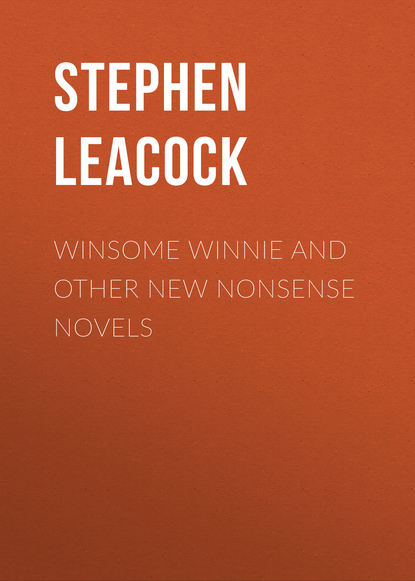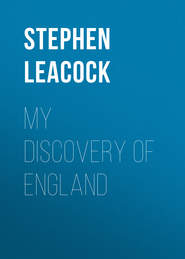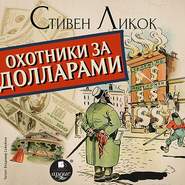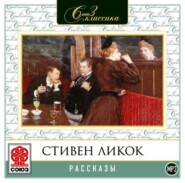По всем вопросам обращайтесь на: info@litportal.ru
(©) 2003-2025.
✖
Winsome Winnie and other New Nonsense Novels
Автор
Год написания книги
2019
Настройки чтения
Размер шрифта
Высота строк
Поля
"Precisely; the thing is simplicity itself. And what contribution will they make to the Imperial Exchequer?"
"None."
"And will they pay their own expenses?"
"They refuse to."
"Exactly. All this is plain sailing. Of course they must have a constabulary. Lord Edward," continued the Premier, turning now to the Secretary of War, "how long will it take to send in a couple of hundred constabulary? I think they'll expect it, you know. It's their right."
"Let me see," said Lord Edward, calculating quickly, with military precision, "sending them over the Barooda in buckets and then over the mountains in baskets—I think in about two weeks."
"Good," said the Premier. "Gentlemen, we shall meet the House to-morrow. Sir John, will you meantime draft us an annexation bill? And you, young man, what you have done is really not half bad. His Majesty will see you to-morrow. I am glad that you are safe."
"On my way home," said Powers, with quiet modesty, "I was attacked by a lion–"
"But you beat it off," said the Premier. "Exactly. Good night."
CHAPTER V
It was on the following afternoon that Sir John Elphinspoon presented the Wazoo Annexation Bill to a crowded and breathless House.
Those who know the House of Commons know that it has its moods. At times it is grave, earnest, thoughtful. At other times it is swept with emotion which comes at it in waves. Or at times, again, it just seems to sit there as if it were stuffed.
But all agreed that they had never seen the House so hushed as when Sir John Elphinspoon presented his Bill for the Annexation of Wazuchistan. And when at the close of a splendid peroration he turned to pay a graceful compliment to the man who had saved the nation, and thundered forth to the delighted ears of his listeners—
Arma virumque cano Wazoo qui primus ab oris,
and then, with the words "England, England," still on his lips, fell over backwards and was carried out on a stretcher, the House broke into wild and unrestrained applause.
CHAPTER VI
The next day Sir Perriton Powers—for the King had knighted him after breakfast—stood again in the conservatory of the house in Carlton Terrace.
"I have come for my reward," he said. "Do I get it?"
"You do," said Angela.
Sir Perriton clasped her in his arms.
"On my way home," he said, "I was attacked by a lion. I tried to beat it–"
"Hush, dearest," she whispered, "let me take you to father."
IV
WHO DO YOU THINK DID IT? OR, THE MIXED-UP MURDER MYSTERY
(Done after the very latest fashion in this sort of thing)
NOTE.—Any reader who guesses correctly who did it is entitled (in all fairness) to a beautiful gold watch and chain.
CHAPTER I
HE DINED WITH ME LAST NIGHT
The afternoon edition of the Metropolitan Planet was going to press. Five thousand copies a minute were reeling off its giant cylinders. A square acre of paper was passing through its presses every hour. In the huge Planet building, which dominated Broadway, employés, compositors, reporters, advertisers, surged to and fro. Placed in a single line (only, of course, they wouldn't be likely to consent to it) they would have reached across Manhattan Island. Placed in two lines, they would probably have reached twice as far. Arranged in a procession they would have taken an hour in passing a saloon: easily that.
In the whole vast building all was uproar. Telephones, megaphones and gramophones were ringing throughout the building. Elevators flew up and down, stopping nowhere.
Only in one place was quiet—namely, in the room where sat the big man on whose capacious intellect the whole organization depended.
Masterman Throgton, the general manager of the Planet, was a man in middle life. There was something in his massive frame which suggested massiveness, and a certain quality in the poise of his great head which indicated a balanced intellect. His face was impenetrable and his expression imponderable.
The big chief was sitting in his swivel chair with ink all round him. Through this man's great brain passed all the threads and filaments that held the news of a continent. Snap one, and the whole continent would stop.
At the moment when our story opens (there was no sense in opening it sooner), a written message had just been handed in.
The Chief read it. He seemed to grasp its contents in a flash.
"Good God!" he exclaimed. It was the strongest expression that this solid, self-contained, semi-detached man ever allowed himself. Anything stronger would have seemed too near to profanity. "Good God!" he repeated, "Kivas Kelly murdered! In his own home! Why, he dined with me last night! I drove him home!"
For a brief moment the big man remained plunged in thought. But with Throgton the moment of musing was short. His instinct was to act.
"You may go," he said to the messenger. Then he seized the telephone that stood beside him (this man could telephone almost without stopping thinking) and spoke into it in quiet, measured tones, without wasting a word.
"Hullo, operator! Put me through to two, two, two, two, two. Is that two, two, two, two, two? Hullo, two, two, two, two, two; I want Transome Kent. Kent speaking? Kent, this is Throgton speaking. Kent, a murder has been committed at the Kelly residence, Riverside Drive. I want you to go and cover it. Get it all. Don't spare expense. The Planet is behind you. Have you got car-fare? Right."
In another moment the big chief had turned round in his swivel chair (at least forty degrees) and was reading telegraphic despatches from Jerusalem. That was the way he did things.
CHAPTER II
I MUST SAVE HER LIFE
Within a few minutes Transome Kent had leapt into a car (a surface car) and was speeding north towards Riverside Drive with the full power of the car. As he passed uptown a newsboy was already calling, "Club Man Murdered! Another Club Man Murdered!" Carelessly throwing a cent to the boy, Kent purchased a paper and read the brief notice of the tragedy.
Kivas Kelly, a well-known club man and bon vivant, had been found dead in his residence on Riverside Drive, with every indication—or, at least, with a whole lot of indications—of murder. The unhappy club man had been found, fully dressed in his evening clothes, lying on his back on the floor of the billiard-room, with his feet stuck up on the edge of the table. A narrow black scarf, presumably his evening tie, was twisted tightly about his neck by means of a billiard cue inserted in it. There was a quiet smile upon his face. He had apparently died from strangulation. A couple of bullet-holes passed through his body, one on each side, but they went out again. His suspenders were burst at the back. His hands were folded across his chest. One of them still held a white billiard ball. There was no sign of a struggle or of any disturbance in the room. A square piece of cloth was missing from the victim's dinner jacket.
In its editorial columns the same paper discussed the more general aspects of the murder. This, it said, was the third club man murdered in the last fortnight. While not taking an alarmist view, the paper felt that the killing of club men had got to stop. There was a limit, a reasonable limit, to everything. Why should a club man be killed? It might be asked, why should a club man live? But this was hardly to the point. They do live. After all, to be fair, what does a club man ask of society? Not much. Merely wine, women and singing. Why not let him have them? Is it fair to kill him? Does the gain to literature outweigh the social wrong? The writer estimated that at the rate of killing now going on the club men would be all destroyed in another generation. Something should be done to conserve them.
Transome Kent was not a detective. He was a reporter. After sweeping everything at Harvard in front of him, and then behind him, he had joined the staff of the Planet two months before. His rise had been phenomenal. In his first week of work he had unravelled a mystery, in his second he had unearthed a packing scandal which had poisoned the food of the entire nation for ten years, and in his third he had pitilessly exposed some of the best and most respectable people in the metropolis. Kent's work on the Planet consisted now almost exclusively of unravelling and unearthing, and it was natural that the manager should turn to him.
The mansion was a handsome sandstone residence, standing in its own grounds. On Kent's arrival he found that the police had already drawn a cordon around it with cords. Groups of morbid curiosity-seekers hung about it in twos and threes, some of them in fours and fives. Policemen were leaning against the fence in all directions. They wore that baffled look so common to the detective force of the metropolis. "It seems to me," remarked one of them to the man beside him, "that there is an inexorable chain of logic about this that I am unable to follow." "So do I," said the other.
The Chief Inspector of the Detective Department, a large, heavy-looking man, was standing beside a gate-post. He nodded gloomily to Transome Kent.
"Are you baffled, Edwards?" asked Kent.
"Baffled again, Mr. Kent," said the Inspector, with a sob in his voice. "I thought I could have solved this one, but I can't."














